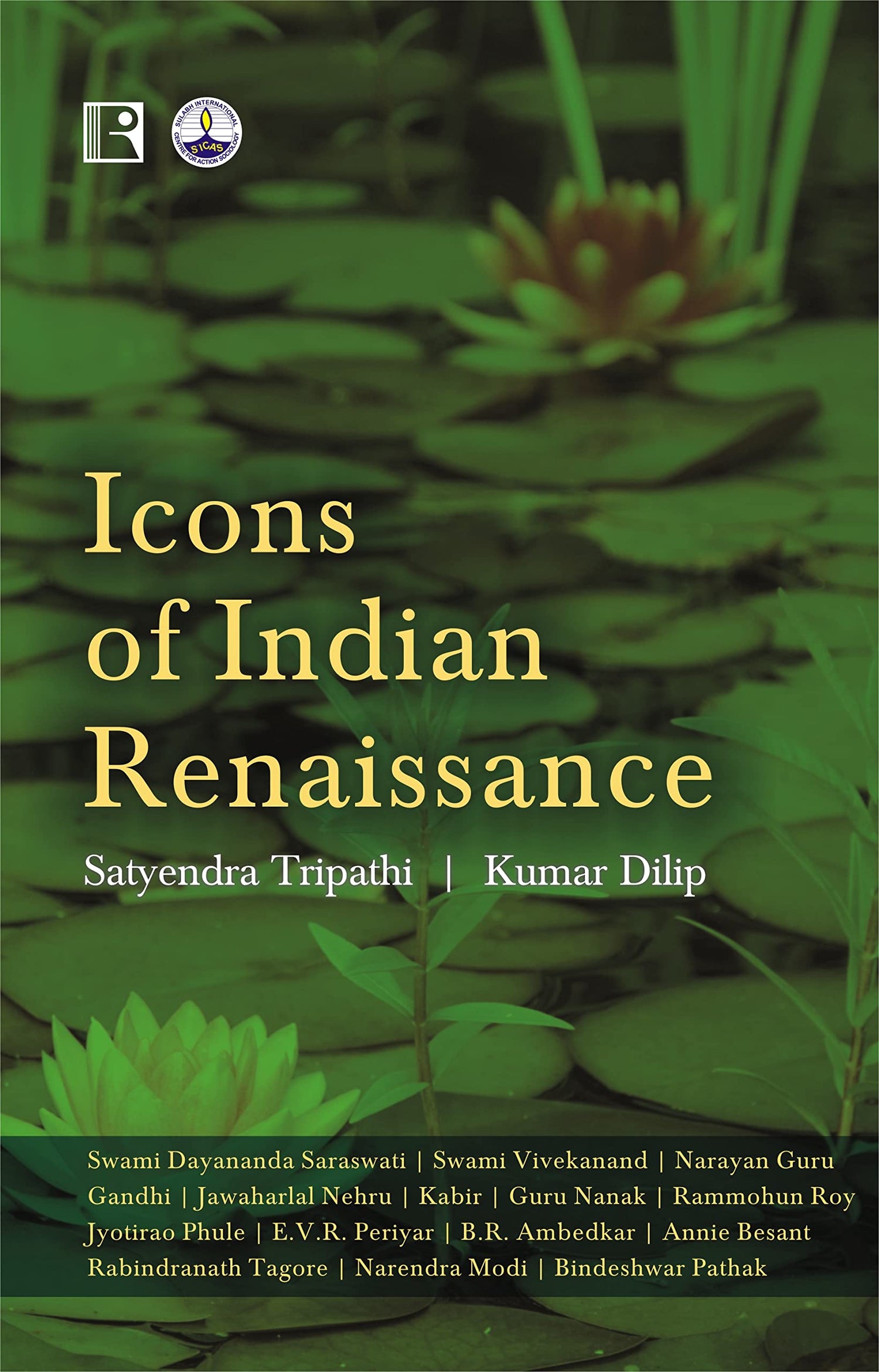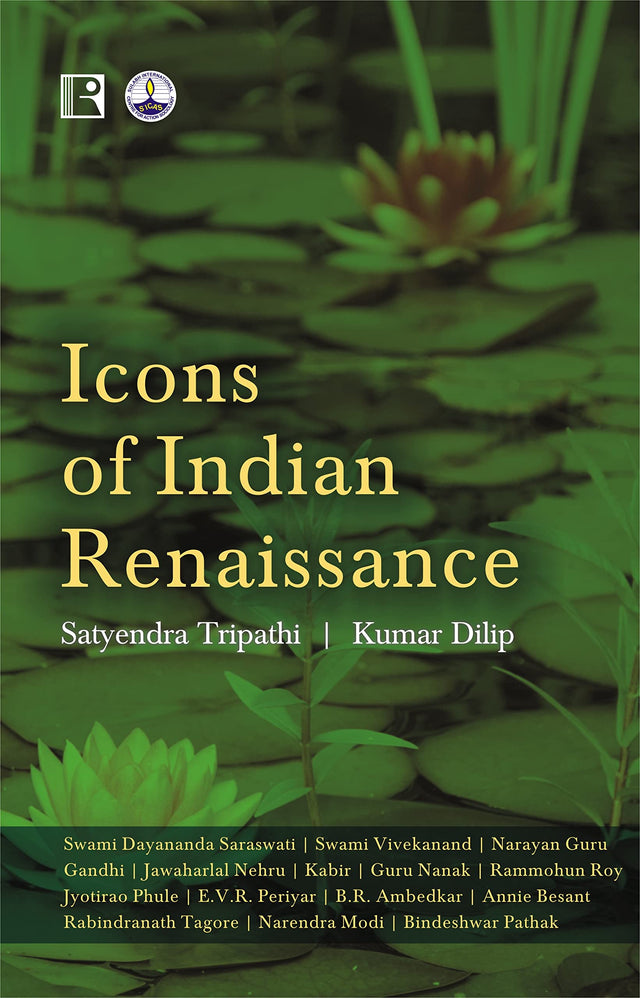Icons of Indian Renaissance
Icons of Indian Renaissance is backordered and will ship as soon as it is back in stock.
Couldn't load pickup availability
Genuine Products Guarantee
Genuine Products Guarantee
We guarantee 100% genuine products, and if proven otherwise, we will compensate you with 10 times the product's cost.
Delivery and Shipping
Delivery and Shipping
Products are generally ready for dispatch within 1 day and typically reach you in 3 to 5 days.
Book Details:
-
Author: Satyendra Tripathi and Kumar Dilip
-
Publisher: Rawat Publications
-
ISBN: 9788131612262
-
Language: English
-
Binding: Hardcover
-
Pages: 348
-
Release Date: 16-08-2022
-
Package Dimensions: 4.3 x 3.3 x 0.8 inches
About the Book:
This book explores the social change and transformation processes in Indian society, spanning from the ancient to modern eras. It focuses on the factors that contributed to the growth and development of the renaissance within Indian society. Traditionally, Indian society was founded on values such as holism, hierarchy, continuity, and transcendence. The renaissance, however, unfolded in two key dimensions: First, through the integration and adaptation of traditional values (orthogenetic changes); and second, through India's interaction with other societies such as Islamic and Christian influences (heterogenetic changes).
The book emphasizes the role of intellectuals, activists, and social reformers in shaping the course of history. These figures are identified as the primary creators of ideas and the driving force behind societal transformation. It provides a detailed analysis of the 'Renaissance Man' in Indian society, offering insight into the contributions of various reformers who played crucial roles in social and cultural changes.
The concept of the Renaissance is examined both from a European historical perspective and in relation to Indian traditional society. Notable social reformers such as Swami Dayananda Saraswati, Swami Vivekananda, Narayan Guru, Mohandas Karamchand Gandhi, Jawaharlal Nehru, and many others are discussed for their contributions to India's renaissance and social transformation.
Contents:
-
Introduction
-
Historicity of Renaissance
-
Renaissance in Europe
-
British Rule and the Indian Value-System
-
Nature of Renaissance in Indian Society
-
Indigenous Changes in Cultural Traditions
-
Dreamers of Revivalism
-
Anti-Hierarchical Cultural Movements
-
Environmental Conscientization
-
Indian Renaissance and Social Transformation
About the Author / Editor:
-
Satyendra Tripathi is an experienced social scientist who has worked in various countries, including India, The Netherlands, the United Kingdom, and the USA. He was previously a professor at Banaras Hindu University and has held significant positions in the United Nations. Tripathi specializes in social change and development, especially in developing countries. He also worked with Sulabh International on training programs focused on water and sanitation.
-
Kumar Dilip is the President of Sulabh International Social Service Organisation, which focuses on sanitation, water, environment, gender, and human rights in India. He has been instrumental in initiating development programs and providing humanitarian support during crises like the COVID-19 pandemic. Kumar is deeply committed to addressing issues like hunger and livelihood, and he is actively involved in civil society organizations at the grassroots level across India.





